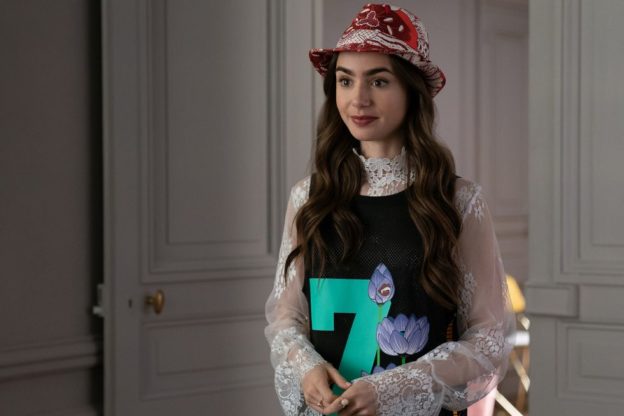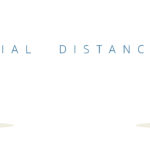An unlikely combo Emily in Paris and Career Coaching
Maybe not. Read on.
For anyone who lives in a box, sans Wi-Fi, “Emily in Paris” is one of Netflix latest, hottest streamed series. It tells the story of Emily Cooper a PR junior sent from her H.Q. in Chicago to the offices of a French subsidiary in Paris. Her mission is to show them the American perspective, marketing speak for “sort them out”. It has become the show everyone loves to hate. But despite it all, connecting Emily in Paris and career coaching is not such a wild stretch.
Brain vacation
Netflix launched the series in October 2020 at the height of the pandemic when everyone was just about done with bleak movies with sad or scary endings. Entertainment Weekly described the series as “a five-hour brain vacation.” Indeed, the show requires us to suspend disbelief for its entirety.
It is frothy and incredible escapism. When I say incredible, this is not hyperbole. Everything about it is completely unbelievable.
The plot – such that it is
“Emily in Paris” chronicles the activities of a twenty-something career-focused junior marketing executive in Savoir, a chic and renown, boutique French PR agency. Emily, a budding U.S social media influencer, with her American attitudes, not unsurprisingly receives a cold reception. This comes especially from her new boss Sylvie who resents this intrusion, not just because Emily speaks no French at all.
Emily who clearly would normally be paid €2000 per month (Glassdoor) lives in a somewhat palatial “chambre de bonne” a maid’s room (rent in the 5th Arrondissement upwards of €800 per month) complete with hot chef neighbour on the floor below. I forgive this piece – it may be part of an expat deal. Not the hot French chef clearly. OK I may be older, but I’m not dead.
Everyone around her speaks English and is perfectly willing to switch from French for her benefit. She is able to increase her Instagram followers from 48 to 20000 by posting photos of herself eating croissant. Tip to self: give it a try.
She teeters around Paris in outfits I have never seen in all the years I have been going there. London, Berlin possibly. Channelling some colour-blind alien designer, with all those garish patterns, hats, and gloves, it’s a hard look to miss. She can afford high-end pricey restos and bars on her pittance of a salary.
Even her impoverished Chinese roommate Mindy wears Chanel busking in the park.
As you do.
Cultural Stereotypes
The show is essentially a compendium of national and cultural stereotypes. Emily, the culturally clueless and tone-deaf American workaholic, blusters her way and turns every experience into a branding moment. Quelle horreur.
The French characters are a similar amalgam of every stereotype around French people and culture. The producers leave very little out: resistant to change, late starts and long lunches, Sylvie sleeping with her clients and smoking in the office. The show portrays French men as sexist and insensitive.
Even the Ukrainian character is depicted as dim and dishonest resulting in a complaint from the Ukrainian Cultural Minister.
The Brit gets off relatively lightly. Won’t/can’t/shan’t speak French, drinks beer and plays football. OK. Maybe not.
So, what saves it?
The themes are so outrageous and steeped in cultural dissonance, with very little nuance that everyone is aghast. But what it achieves for me, is that this show is so horrendous that it has started conversations. I now see an increase in discussions on various platforms around cultural differences and barriers associated with beliefs, values, and customs in different countries. Falling into gender stereotyping myself, even men in my network have posted on it. It must be the hats.
There is a reason there are stereotypes. There is usually an element of truth in them. But not all of them endure and not all of them are so binary.
Emily in Paris and Career Coaching – the connection
We need to start applying the same understanding to career coaching. The U.S was probably the first to recognise career coaching as a separate sector, so many of the top pundits in this field are American. The casual, informal confidence and individualism found in some male-coded Anglo-Saxon organisations, doesn’t always work in other geographies. This behaviour can be perceived as being brash and arrogant, rather than go-getting and dynamic.
There are still geographies which ask for a photo on a CV. Some cultures discourage women from putting images on their resumes. Contacting hiring managers directly in hierarchical or low context organisations may not work. We have to factor in that not everyone will fall into the bold, out-going risk-taking demographic.
We have to learn to manage our biases and consider all our differences, not just cultural backgrounds. This includes personality types, communication styles, gender, ethnicity, age, or different career points and make career coaching more inclusive.
The reverse is also true
But conversely there are also lessons to be learned as in Emily’s case, some things are worth trying and are successful.
The secret is to suggest that situations are nuanced and that cross cultural differences can apply to develop a wider understanding. For job seekers the key is to be strategic. Or to bring in a Chinese influence from Bruce Lee.
“Absorb what is useful, reject what is useless, add what is essentially your own.”
Seasons 3 and 4
I understand Season 3 and 4 have been signed, so maybe we will see some growth in cross-cultural understanding and personal development.
Or maybe we will just see more terrible hats, but I hope that the lessons we are learning from linking Emily in Paris and career coaching will endure.
Image: Netflix
If your your organisation needs support to manage bias in your recruitment processes





